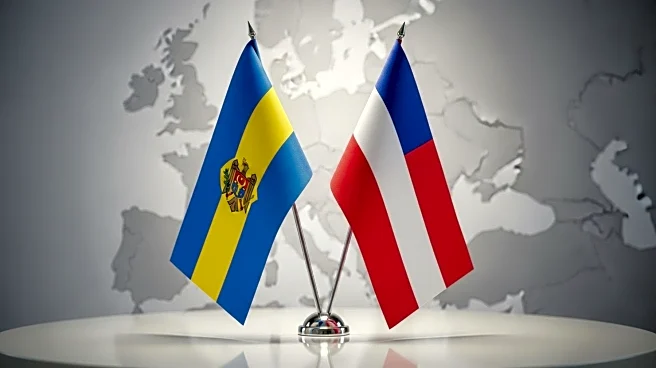What is the story about?
What's Happening?
President Donald Trump is set to speak with Ukrainian President Volodymyr Zelensky as efforts to end Russia's war in Ukraine have stalled, causing frustration within the White House. Trump announced that he would be having a conversation with Zelensky shortly, indicating that the discussion would help determine future actions. The White House confirmed that no call is currently scheduled with Russian President Vladimir Putin. Trump has previously issued 'two-week' deadlines to Putin, but he stated that he has no current message for him, although he hinted at potential consequences if Putin's decisions are unsatisfactory. The call with Zelensky is expected to occur during a meeting in Paris with Ukraine's allies, chaired by French President Emmanuel Macron and British Prime Minister Keir Starmer, focusing on post-war guarantees as part of a potential peace deal.
Why It's Important?
The conversation between President Trump and President Zelensky is crucial as it comes at a time when diplomatic efforts to resolve the conflict in Ukraine have hit a standstill. The outcome of this discussion could influence the direction of U.S. foreign policy and its involvement in the conflict. The stalled momentum in peace negotiations has implications for international relations, particularly with Russia, as President Putin is currently engaging with other authoritarian leaders on the global stage. The U.S. and its allies are keen on ensuring stability in the region, and Trump's engagement with Zelensky could be pivotal in shaping the future of Ukraine's sovereignty and security.
What's Next?
Following the call, potential next steps could include increased diplomatic efforts or strategic decisions by the U.S. and its allies to support Ukraine. The meeting in Paris may result in new commitments or guarantees for Ukraine, influencing the broader geopolitical landscape. Stakeholders, including European leaders and international organizations, will likely monitor the outcomes closely, as they could impact future negotiations and the balance of power in Eastern Europe.















